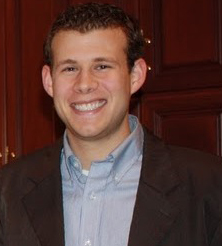Have you wondered how Penn PhDs are using Career Services in their job search efforts? Each year, Career Services works with hundreds of Penn doctoral students and postdocs in their career exploration, planning and job search efforts. We also conduct “Career Plans Surveys” of recent PhD graduates, to find out their post-graduation plans and to ask them to share their advice with current students. Below are just a sample of the responses we have received very recently – each with some direct and doable suggestions for making the most of your time and the resources here at Penn. These graduates, representing a wide variety of disciplines, utilized Career Services for doctoral students/postdocs as one component of their job search efforts. We encourage you take advantage of their insights:
Linguistics PhD (2012), currently a lecturer at a university in the United Kingdom:
“I made heavy use of the Academic Job Search Handbook, the sample materials available on the Career Services website (and similar materials on the website of Berkeley’s Career Center), and one-on-one meetings with Career Services staff. I strongly think knowing how to craft a well-formulated research statement and cover letter helped me get a leg up, because I was short-listed for two jobs in departments where I didn’t have any close contacts, and I really think that was due to how I sold myself in my application materials. That said, for the one offer I did end up getting, I had three close faculty contacts in the department: so there is a large element of networking and luck in the process. But I do really feel that Career Services helped to demystify the process and show me how to write about my work in a promising and intelligent way.”
Sociology PhD (2012), currently a postdoc at a R1 institution:
“One of my committee members hired me for a project he is working on. In terms of advice I’d give other students, I’d say develop ties with academic people outside of your committee, talk to people in your field, meet as many people as possible. Also I would highly recommend using Career Services. Although that’s not how I got this job, I had interviews thanks to the help I got from the career advisors at Penn.” (Check out Career Services resources on the academic job search.)
Bioengineering PhD (2012) currently a consultant with an international management consulting firm:
“I went to Career Services first to get my first few concrete steps, which were to write a resume along with reaching out to alumni on PACnet (now called QuakerNet). The initial networking and research helped me determine which field I wanted to pursue first, so I could focus the limited time and energy I had on optimizing my resume and cover letter for that niche. I then went to Career Services about eight more times to hone my resume and cover letter, so I had a solid platform to apply to many jobs quickly. After that, I reached out to anyone who would talk to me in that field to either get advice or do case studies. Pithy advice: prioritize; get an outside coach who knows the process to let you know where you should focus your energies because you can’t do everything.” (Click here for information on consulting for PhDs.)
Communications PhD (2013), currently a postdoc at a R1 institution:
“1. Create a list of what you want out of a career, what you enjoy doing, what you are good at doing, and where you would like to live.
2. Networking throughout the entire time as a student is important to get to know organizations, institutions, or individuals who do similar types of work or research. This could be at informal meetings, lunch seminars, conferences. And it helps to inform your choices of courses, projects, and research topics during the program. Don’t wait until the last year to do this.*
3. Start about a year before the expected date of graduation to scan through position announcements that seem to match those in the list and get a sense of skills and responsibilities that are required.
4. Attend many of the excellent Career Services workshops; make appointments with the CS advisors along every stage of the job search process.
5. Keep in touch with your referees during the search process about your plans, outcomes from interviews, etc.
6. Before interviewing, talk to as many people as possible who are familiar about the organization e.g., alumni, advisors, or faculty.
7. Staying positive and keeping the search in perspective and balancing the search with other daily demands is really important too.
8. Thank everyone who helped you and gave advice along the way.”
* View our suggested PhD career planning steps/timeline here.
Speaking of “thanks”….. Career Services is grateful for all the doctoral students who fill out our surveys and take the time to share their advice with us on behalf of their peers.






